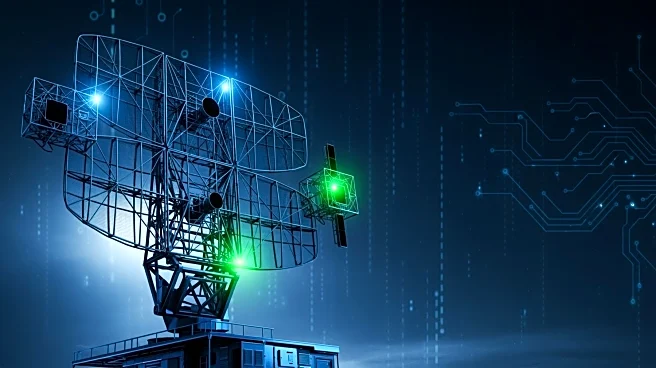What's Happening?
Artificial Intelligence (AI) is increasingly becoming a pivotal force across various sectors, including warfare and agriculture. The Indian Army has been utilizing AI-driven technologies such as robotic Multi-Utility Legged Equipment (MULE) for reconnaissance
and logistical support in challenging terrains. Exercises like Operation Trishul and Maru Jwala have demonstrated the integration of AI in military operations, showcasing its potential to enhance border security and combat capabilities. Meanwhile, AI's role in agriculture is being explored to optimize crop management and disease detection. The rapid advancement of AI technologies raises questions about their impact on human roles and the potential for machines to surpass human capabilities.
Why It's Important?
The growing influence of AI in critical sectors such as defense and agriculture highlights its transformative potential. In defense, AI technologies can enhance strategic capabilities, reduce human risk, and streamline operations. In agriculture, AI can improve efficiency and sustainability by optimizing resource use and disease management. However, the increasing reliance on AI also poses challenges, including ethical concerns, job displacement, and the need for regulatory frameworks to ensure responsible use. As AI continues to evolve, it is crucial to balance its benefits with potential risks to human civilization.
What's Next?
The future of AI involves further integration into various sectors, potentially leading to significant shifts in job markets and societal structures. Governments and organizations may need to develop policies to address the ethical and practical implications of AI, including its impact on employment and privacy. The ongoing debate about AI's role in society suggests that regulatory measures and international cooperation will be essential to harness its benefits while mitigating risks.
Beyond the Headlines
The ethical and cultural implications of AI's rise are profound. As AI systems become more autonomous, questions about accountability and control become critical. The potential for AI to influence human relationships and societal norms is significant, necessitating a reevaluation of human-machine interactions. The development of AI technologies also raises concerns about data privacy and the potential misuse of AI in surveillance and warfare.















